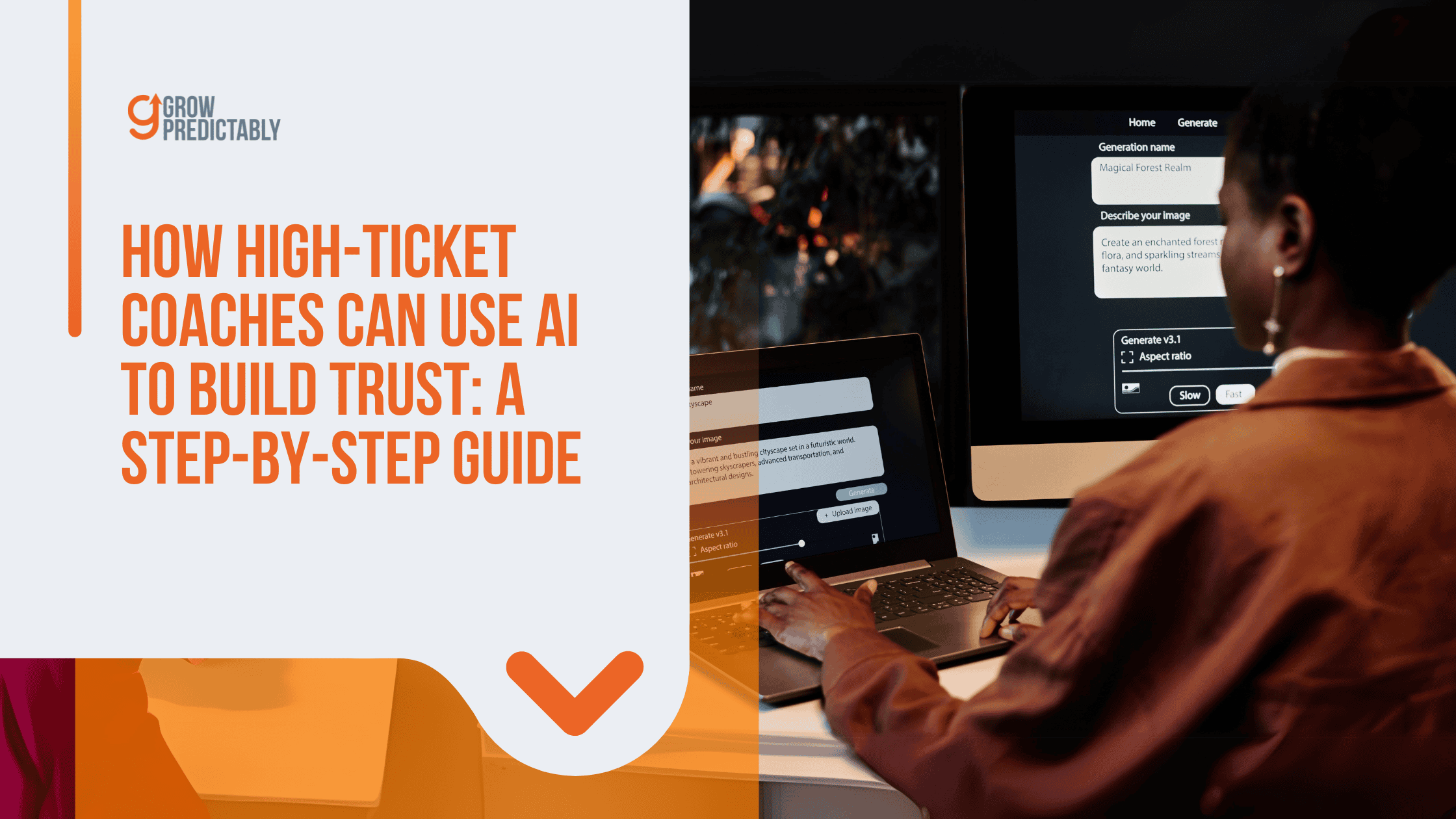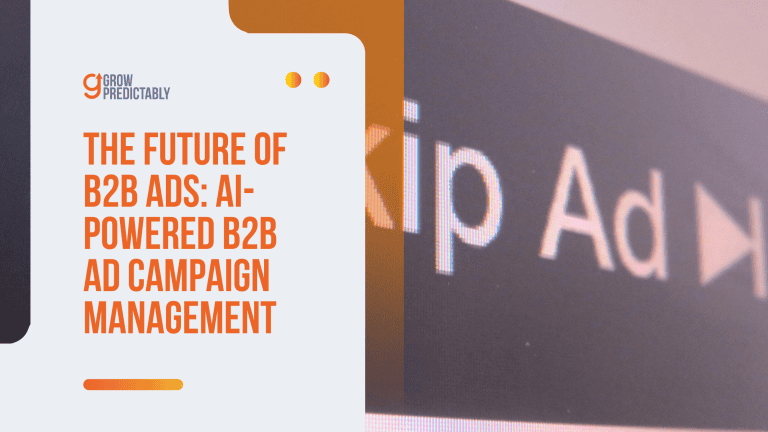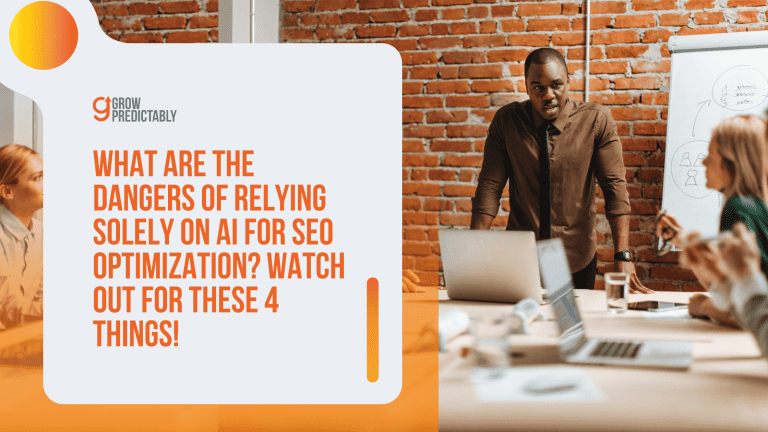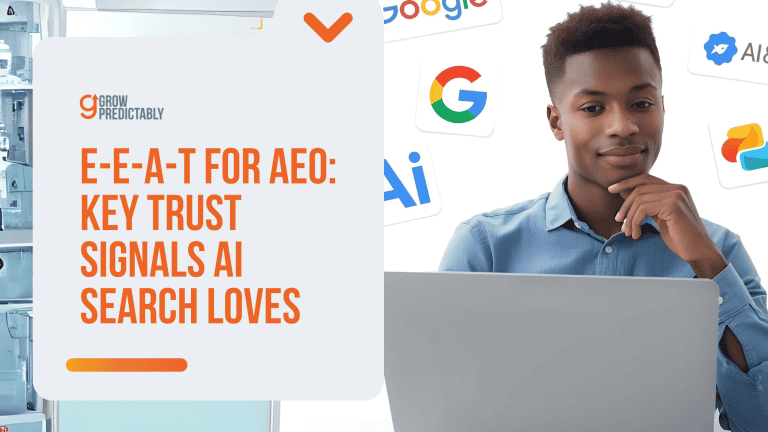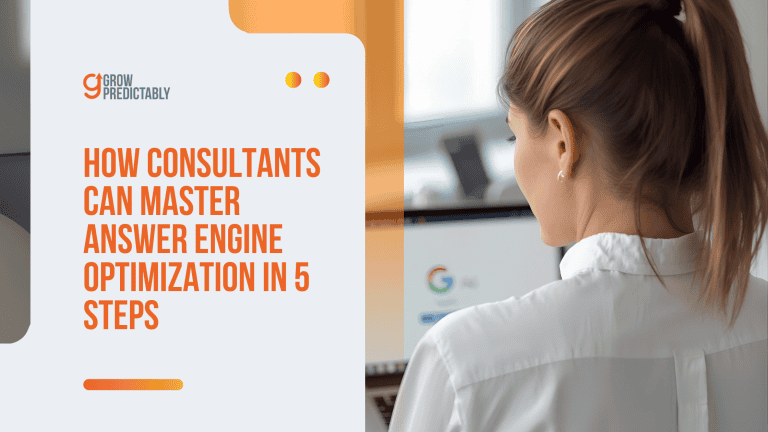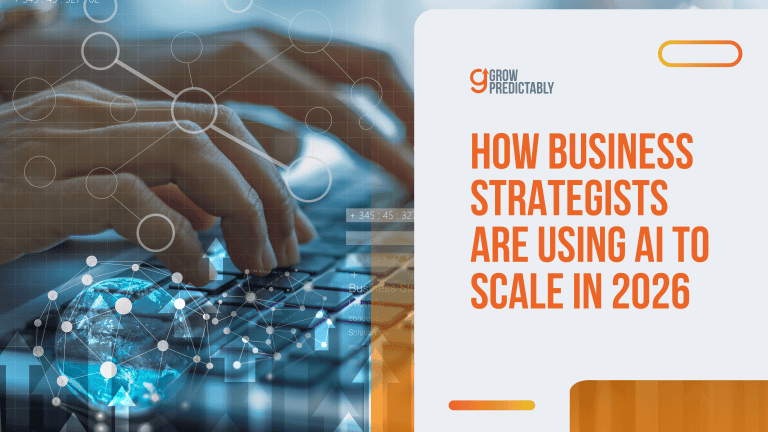How High-Ticket Coaches Can Use AI to Build Trust: A Step-by-Step Guide
Coaching is all about personal connections.
So when you hear “Use AI to build trust,” it might sound contradictory.
But what if it’s not?
What if, instead of weakening relationships, AI actually strengthens them?
That’s the experience of many high-ticket coaches who have adopted AI to elevate their practice.
By understanding how high-ticket coaches can use AI to build trust, these coaches are transforming their ventures, streamlining operations, enhancing client experiences, and scaling their businesses with remarkable efficiency.
They’re seeing increased client retention, deeper connections, and less burnout.
Let’s explore how they achieved this—and why the solution might be easier than you think.
This article is your guide if you’re a high ticket coach or run other businesses looking to leverage AI for trust-building and growth.
It all begins with one key shift you probably haven’t considered yet.
TL;DR
High-ticket coaches can leverage AI to build trust by enhancing personalized communication and tracking client progress to offer tailored insights. By positioning AI as a behind-the-scenes partner, coaches can deliver superior service and maintain the personal connection clients expect when paying premium fees.
KEY TAKEAWAYS
- Use AI tools to analyze client patterns and create detailed customer avatars, which helps tailor communication to each client’s needs.
- Implement AI-driven automation for routine tasks to ensure consistent and timely client interactions without compromising personal engagement.
- Develop a transparent approach towards AI utilization, assuring clients it enhances, rather than replaces, personalized service.
Why Trust Matters More Now in High-Ticket Coaching
In high-ticket coaching, trust is paramount because clients aren’t just buying time—they’re investing in a promise of transformation.
High stakes mean these clients are risking their dreams and financial resources for a significant change, making trust the cornerstone of successful high-ticket sales.
Clients pay premium prices expecting personalized service, creating a paradox for coaches considering AI: it enhances efficiency but raises fears of losing the human touch.
Selling high-value coaching requires building deep trust, effectively positioning your offerings, and communicating personally to reassure clients that your solution is uniquely tailored to meet their deepest needs.
Many coaches hesitate to adopt AI tools, fearing that automation might dilute the personal connection their premium fees demand.
It’s essential to provide valuable insights and maintain a personalized approach, ensuring that high-ticket items are seen as transformative investments.
Is Building Trust Challenging?
Premium clients don’t just research you – they investigate you.
They dig through your social media, analyze every testimonial, and cross-reference your claims with reality.
The scrutiny never stops once they become clients.
Every interaction gets measured against their investment, which is why the thought of using AI feels so risky.
Here’s the fear: if clients discover you’re using AI to help craft responses or analyze their progress, will they feel cheated?
Will they think they’re paying premium prices for automated service?
This anxiety keeps coaches stuck using outdated methods while their competitors who embrace AI smartly are delivering better results more efficiently.
Building trust with these clients requires a different approach:
- They inspect every detail of your background and client success stories before committing
- They demand complete transparency about your methods and realistic timelines
- They expect consistency in every interaction and personalized attention
- They require proof you understand their unique situation and challenges
- They respond to a sales approach that uses open ended questions and active listening to uncover their needs and build trust
The irony is that AI can actually help you deliver more personalized service.
Smart coaches use AI to analyze client patterns, track progress more accurately, and identify insights they might miss manually.
AI also enhances relationship building by supporting your sales approach with tools that help you better understand and connect with clients.
The key is using AI to enhance your human capabilities, not replace them.
AI can also help coaches build relationships by supporting active listening and suggesting open ended questions, making every client interaction more meaningful and tailored.
How Skepticism and High Expectations Can Become Barriers
Skepticism and high expectations become barriers when clients hold back, resisting recommendations and doubting the effectiveness of your methods.
These attitudes can impede their success, especially when they expect rapid results and get impatient with natural growth timelines.
If clients sense you’re using automated methods, they might feel like another number in a system, particularly in high-ticket coaching where trust and personalization are key.
This perception can deter coaches from using AI tools that could actually enhance service quality.
Address these barriers by:
- Sharing success stories from similar clients to address doubts.
- Setting realistic expectations about the transformation process.
- Providing quick wins to build initial confidence.
- Creating accountability systems to keep engagement levels high when motivation wanes.
Mastering this balance can turn skeptical clients into strong advocates.
Effective coaches use AI discreetly to enhance their service, ensuring insightful, personalized guidance without losing the personal connection that’s crucial for building loyalty.
AI can support coaching through personalized check-ins and resources, but ultimately, it is the human touch that sustains customer loyalty.
What’s The Role of Personal Connection in Premium Coaching?
In premium coaching, personal connection transforms transactions into partnerships.
High-ticket clients seek coaches who understand their unique situations and prioritize their success.
While coaches may fear that AI could diminish this personal touch, the reality is that AI can enhance it by providing better insights and tracking progress more accurately.
The key is to use AI to amplify your intuition, not replace it.
By spotting behavioral patterns and emotional triggers, AI supports deeper client connections.
Here are ways personal connection drives success:
- Honest client information leads to more effective solutions.
- Strong relationships encourage clients to tackle challenging recommendations.
- Emotional investment strengthens commitment during slow progress.
- Connected clients frequently become referral sources, attracting more high-value prospects.
Unlike consulting, coaching involves truly caring about client success and pushing them beyond comfort zones.
AI supports this by enhancing meaningful conversations, ultimately fostering stronger relationships and better results.
How Do Customer Avatars Help You Decipher Your Clients?
Most coaches throw marketing darts in the dark.
They create content for “anyone who needs help” and wonder why nobody responds.
Your business dies when you try to speak to everyone because you end up speaking to no one.
A customer avatar is your ideal client on paper.
Think of it as a detailed profile of the person who desperately needs what you offer and has the money to pay for it.
This isn’t some fluffy marketing exercise – it’s the foundation that determines whether your coaching business thrives or dies.
Crafting a message that speaks directly to your ideal client’s needs and aspirations is essential for effective engagement and conversion.
What is a Customer Avatar, and Why Does it Matter for Coaches?
Your customer avatar is more than demographics.
It’s the complete picture of your perfect client – their fears, dreams, daily struggles, and the words they use to describe their problems.
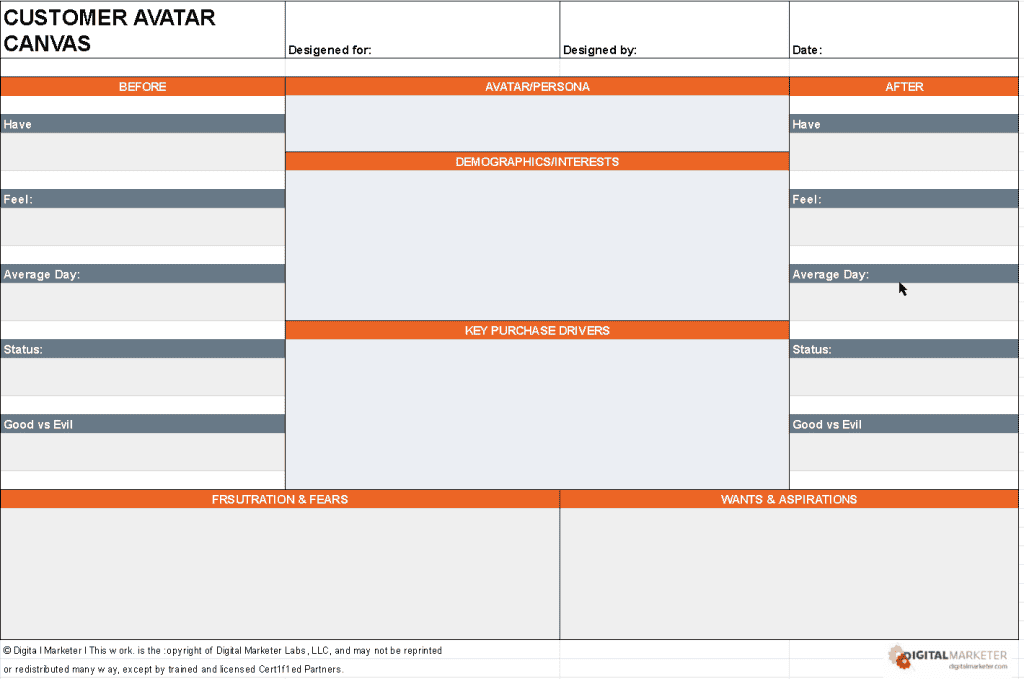
When 63% of consumers expect brands to know their individual needs and preferences according to Salesforce research, generic messaging kills your conversion rates.
Here’s what happens when you nail your customer avatar:
- Your marketing messages hit like a sledgehammer instead of bouncing off like rubber balls
- Potential clients feel like you’re reading their minds and immediately want to work with you
- You attract the right potential client who is ready to invest in your services
- You stop wasting money on ads that attract broke tire-kickers who can’t afford your services
- Your content creation becomes effortless because you know exactly what keeps your ideal client awake at 3am
The difference between successful coaches and struggling ones isn’t talent – it’s precision.
Successful coaches know exactly who they’re talking to.
They understand that Sarah, the overwhelmed executive mom, responds differently than Mike, the burned-out entrepreneur.
They craft messages that make each person think “This coach gets me.”
How AI Can Help You Create and Refine Detailed Client Avatars
AI transforms customer avatar creation from guesswork into science.
Instead of making assumptions about your ideal client, you can use AI to analyze patterns, predict behaviors, and uncover insights you’d never find manually.
The technology processes thousands of data points in seconds and reveals the psychological triggers that make your ideal clients buy.
Smart coaches use AI to dig deeper than surface-level demographics.
The tool analyzes social media conversations, survey responses, and customer feedback to identify the exact language your ideal clients use.
It spots patterns in their buying behavior and reveals the emotional triggers that drive their decisions.
Here’s how AI supercharges your avatar creation process:
- Analyzes competitor audiences to identify underserved market segments with high buying potential
- Processes customer reviews and testimonials to extract common pain points and desires your ideal clients express
- Identifies the specific platforms where your ideal clients spend their time and the content they engage with most
- Predicts which marketing messages will resonate based on psychological profiles and behavioral data
The real power comes from AI’s ability to evolve your avatar over time.
As you gather more client data, AI refines the profile and reveals new opportunities.
It might discover that your ideal clients also struggle with a secondary problem you never considered – opening the door for a new service offering that increases your revenue per client.
Your customer avatar becomes a living document that grows smarter with every interaction.
AI helps you spot trends before your competitors do and positions you as the obvious choice when your ideal clients are ready to invest in coaching.
What’s The Point of The Customer Journey in Building Trust?
The Customer Journey is your blueprint for trust.
Clients don’t instantly decide to hire you—they navigate through a series of stages before they trust you with their money and problems.
Skipping steps can lead them to walk away, while mastering the sequence converts strangers into loyal advocates.
The Customer Value Journey maps every interaction between you and your ideal client, from the initial awareness of your existence to becoming a devoted fan.
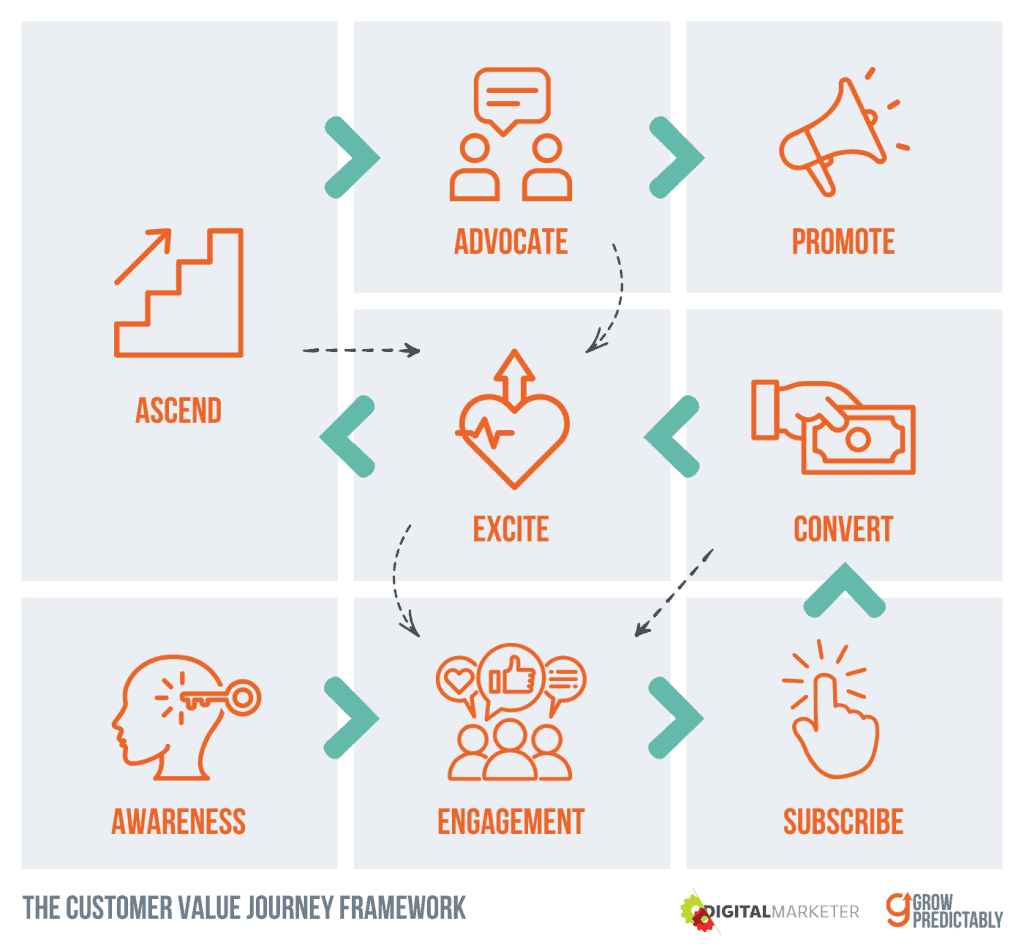
AI helps by automating and optimizing these stages, enabling you to manage clients more efficiently and expand your reach.
This is not about pressuring clients into a purchase but about nurturing trust, one interaction at a time.
The journey’s eight stages each serve a unique role in strengthening the relationship.
It’s crucial to remember: people don’t buy coaching services—they invest in transformative experiences.
That requires a deep, trusting relationship, far beyond a simple online purchase.
Rushing from awareness to conversion can feel forced and insincere. The engagement stage is vital; without it, clients may not trust you enough to subscribe.
The sale is merely a milestone in a much longer, trust-based relationship.
How to Gain a Client’s Trust Step-by-Step in Your Coaching Practice
To build trust in coaching, start by using AI intelligently to enhance your intuitive understanding of clients rather than making interactions robotic.
When incorporated strategically, AI helps you appear more responsive and in tune with your clients’ needs.
Here’s why this matters: Over 80% of consumers cite “trust” in a brand as an important factor before purchasing, meaning trust-building is crucial. (Source)
AI streamlines tasks like lead generation, data analysis, and content creation, freeing you to focus on cultivating a meaningful relationship with your clients.
By mastering this balance, you provide exceptional service while maintaining the personal connection required for high-ticket coaching success.
In the early stages of the Customer Value Journey, clients assess whether you’re worthy of their time and trust.
They arrive skeptical, often wary from past experiences with coaches who didn’t deliver.
Your job is to stand apart by providing high-quality free content that showcases your expertise, without expecting anything in return.
As you continue to show up with valuable insights consistently, trust grows naturally, reinforcing the relationship and justifying your premium pricing.
Awareness Stage
Your prospects don’t know you exist yet. AI helps you show up exactly where they’re looking for solutions, using the exact words they use to describe their problems.
Instead of generic “life coaching” content, you’re creating posts about “why high-achieving executives feel empty despite their success.”
AI Tools:
- Social listening to find your prospects’ exact language
- Content analysis to identify trending topics in your niche
- SEO optimization to appear in their search results
- AI-generated video scripts for engaging social media content
Action Steps:
- Monitor Facebook groups and LinkedIn where your ideal clients gather
- Use their exact phrases in your content, not coaching jargon
- Create content that addresses their specific, unspoken frustrations
Engagement Stage
Now they know you exist, but they’re testing whether you’re worth their attention.
AI tracks what content they consume and personalizes their experience.
Someone who reads about productivity gets different follow-up content than someone focused on confidence.
Smart Engagement:
- Behavioral tracking to see what topics resonate
- Personalized content recommendations based on interests
- Optimal posting times for maximum visibility
- AI-optimized sales pages for higher engagement and conversion
Your Strategy:
- Track which content each prospect engages with most
- Send personalized follow-ups based on their interests
- Use AI to determine the best times to post for each audience segment
Subscription Stage
They’re ready to hear from you regularly, but trust is still fragile.
AI-powered lead magnets provide immediate value while gathering intel about their specific situation.
A productivity assessment doesn’t just capture emails – it reveals problems they didn’t know they had.
Conversion Tools:
- Interactive assessments that provide instant value
- Personalized reports based on their responses
- Smart opt-in forms that adapt to user behavior
Implementation:
- Create assessments that solve immediate problems
- Generate personalized reports that showcase your expertise
- Use behavioral data to customize the opt-in experience
- Leverage AI to answer common questions and concerns from new subscribers, building trust early
Conversion Stage
Time for them to invest money, even if it’s small. AI removes friction from this process while building confidence.
Smart scheduling eliminates back-and-forth emails.
Automated reminders ensure they show up.
Personalized pre-call questionnaires help you deliver immediate value. It’s wrong to assume that AI makes the sales process less personal—AI can actually enhance personalization and help you connect more deeply with prospects.
Conversion Systems:
- Automated scheduling with smart calendar integration
- Pre-meeting questionnaires that gather crucial information
- Follow-up sequences that address common objections
Your Process:
- Eliminate scheduling friction with automated booking
- Gather information before meetings to personalize your approach
- Use AI to identify and address objections before they become problems
Excitement Stage
They’ve made their first purchase and now they’re evaluating whether you’re worth bigger investments.
AI tracks their progress and celebrates wins at perfect moments.
It also identifies when they need extra support before they get frustrated, and pinpoints when clients are most likely to succeed so you can provide targeted encouragement to maximize their chances of success.
Client Success Tools:
- Progress tracking across multiple success metrics
- Automated milestone celebrations
- Early warning systems for clients at risk of dropping out
Success Strategy:
- Monitor client progress automatically across all touchpoints
- Celebrate achievements with personalized recognition
- Intervene early when clients show signs of struggle
- Use AI to identify when clients are most likely to succeed and offer targeted encouragement at those moments
Ascension Stage
They trust you with small things and now you’re offering bigger solutions.
AI identifies the perfect timing for upsell conversations based on their progress and engagement patterns.
No more awkward sales pitches – just natural progressions when they’re ready.
Ascension Intelligence:
- Predictive analytics to identify upsell readiness
- Personalized program recommendations
- Automated nurture sequences for higher-ticket offers
Timing Strategy:
- Use AI to identify when clients are achieving significant results
- Offer relevant upgrades based on their specific progress patterns
- Personalize higher-level program recommendations to their goals
- Refine your sales strategy for higher-ticket offers by leveraging AI-powered coaching and client engagement data to customize your approach
Advocating Stage
Happy clients who speak positively about you when asked.
AI identifies peak satisfaction moments to request testimonials and reviews.
It also formats their success stories for maximum impact across different marketing channels.
Advocacy Systems:
- Automated testimonial requests after major wins
- Success story collection and formatting
- Review management across multiple platforms
- AI-guided prompts to help clients position your services effectively when sharing testimonials and reviews
Your Approach:
- Request testimonials immediately after clients achieve breakthroughs
- Capture success stories in multiple formats for different uses
- Make leaving reviews simple with direct links and templates
Promotion Stage
Your biggest fans who actively refer new clients.
AI identifies which clients have the strongest networks and gives them tools to share your services effectively.
It tracks referral sources and optimizes programs based on what actually drives new business.
Promotion Tools:
- Referral tracking with automated rewards
- Social sharing toolkits with pre-written content
- Network analysis to identify high-value referral sources
Referral Strategy:
- Identify clients with the strongest professional networks
- Provide sharing tools that make referrals effortless
- Track and reward successful referral activities automatically
The Bottom Line: AI handles the data and timing while you focus on human connection.
Clients experience better service without knowing technology works behind the scenes.
You become more effective, not less personal.
FAQs
Your Competitive Edge Lies in the Perfect Partnership
The coaching industry stands at a crossroads.
While some coaches cling to outdated methods out of fear that technology will diminish their humanity, forward-thinking professionals are discovering that AI doesn’t replace the human element—it amplifies it.
Your clients will never know that AI helped you identify their breakthrough patterns or predict the perfect moment for their next challenge.
They’ll only experience the result: a coach who seems to understand them at an almost telepathic level, who celebrates their wins at exactly the right moments, and who intervenes with support before they even realize they need it.
The question isn’t whether AI will change coaching—it already has.
The question is whether you’ll use it to elevate your practice or watch from the sidelines as your competitors build deeper relationships, achieve better results, and command higher fees.
The technology is ready.
The strategies are proven.
The only thing standing between you and a transformed coaching practice is your decision to take the first step. Take action now to stay ahead in the rapidly evolving coaching industry.
Your clients are waiting for the best version of you.
AI is simply the tool that helps you deliver it.

